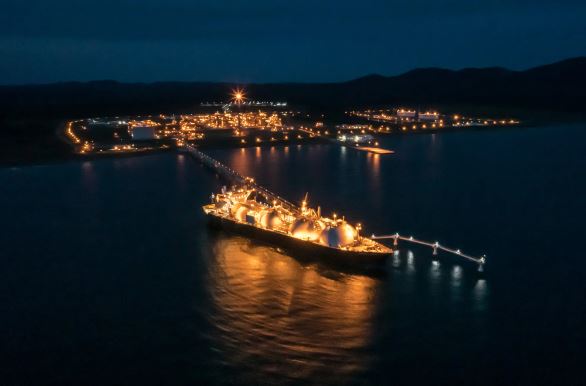The European Union has approved a new set of economic sanctions against Russian individuals and companies, aiming to cut off Russia’s profits from the sale of liquefied natural gas (LNG) to EU members. The Belgian government, which currently holds the rotating presidency of the Council of Europe, announced the agreement on Thursday.
Following Russia’s full-scale invasion of Ukraine in February 2022, most EU countries ceased importing natural gas delivered by pipeline from Russia. However, the EU had previously refrained from imposing formal sanctions on Russian gas imports, leading many countries within the bloc to continue purchasing LNG from Russia, which is transported by ship.
The newly agreed sanctions specifically target Russian LNG imports, including transshipments that pass through EU ports en route to other countries. A senior EU diplomat, speaking on the condition of anonymity, noted that these measures are designed to maximize the impact of existing sanctions by closing loopholes.
Before the invasion, EU countries imported 40 percent of their gas from Russia, primarily through pipelines. While imports of Russian pipeline gas have significantly decreased since 2022, imports of LNG, especially to Belgium, France, and Spain, have increased, making the EU the largest buyer of Russian LNG. Between 2021 and 2023, Russia exported 41 billion to 45 billion cubic meters of LNG annually, with roughly half landing in Europe, according to the Center on Global Energy Policy at Columbia University.
In addition to targeting LNG, the sanctions focus on financial messaging services and restrictions on exports of goods and technologies that can be used for both civilian and military purposes, aiming to prevent these items from reaching Russia through intermediary countries.
Despite these efforts, the EU has faced challenges in preventing goods from reaching Russia via non-sanctioning countries. The latest measures, negotiated by EU ambassadors over several weeks, seek to address these issues while balancing national interests.
The Belgian government emphasized that the sanctions aim to close existing loopholes, enhancing the efficacy of previous measures. The agreement marks a significant step in the EU’s ongoing efforts to penalize Russia for its actions in Ukraine and reduce its economic influence within the bloc.
The new sanctions are part of a broader strategy to exert economic pressure on Russia. By targeting LNG imports, the EU hopes to significantly impact Russia’s energy revenues, which have been a substantial source of funding for its military operations.
The inclusion of financial messaging services in the sanctions aims to disrupt Russia’s ability to conduct international transactions, further isolating its economy from the global financial system. Additionally, the restrictions on exports of dual-use goods and technologies are intended to curtail Russia’s access to materials that could support its military capabilities.
The EU’s decision to move forward with these sanctions reflects a commitment to maintaining pressure on Russia while addressing internal disagreements among member states. The measures highlight the EU’s strategic use of economic tools to influence international behavior and uphold its foreign policy objectives.
The EU’s new sanctions package represents a significant escalation in its efforts to penalize Russia for its invasion of Ukraine. By targeting LNG imports and other economic activities, the EU aims to weaken Russia’s financial base and limit its capacity to sustain prolonged military engagements.

